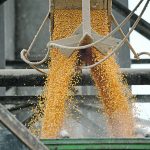Mexico’s recent shift away from genetically modified corn after decades of acceptance has been deeply troubling, like watching a friend or family member embrace unfounded conspiracy theories. After issuing more than 85 food safety approvals and importing GM corn for more than 25 years, Mexico abruptly issued a series of bans on GM corn citing […] Read more
Tag Archives genetic modification

Mexico waits for U.S. to prove GM corn safety
Mexican submission filed with a trade dispute panel claims science proves genetic modification harms human health
MEXICO CITY, Mexico (Reuters) — Mexico is waiting for the United States to prove imported genetically modified corn is safe for Mexicans, deputy agriculture secretary Victor Suarez said as a dispute between the two countries played out under an international trade pact. In a written submission to a panel of the U.S.-Mexico-Canada Agreement, Mexico, the […] Read more
GM acceptance one step in China’s modernization efforts
China is about to start growing genetically modified crops, and that has me wondering what it will mean for its yields, its self-sufficiency, future crop imports and rural culture. China has long accepted imports of genetically modified crops but did not grow them itself except in pilot tests. China did, however, grow GM cotton. That […] Read more

Genetic modification happens often in nature
Researchers show that grasses frequently incorporate DNA from other species in a process called lateral gene transfer
When many people think about genetically modified crops, they think of altering plants in the lab so they can better cope with drought, disease and pests or be able to grow quicker. However, genetic modification is actually a natural occurrence, and research led by the University of Sheffield is the first to show the frequency […] Read more
Genomic crop research goes wild
While the vast majority of crops produced in Canada have been introduced from elsewhere, there is a lack of wild type relatives existing in nature for these crops. This is not the case in many other parts of the world where plants used for domesticated food production have wild types that bear genetic similarity. In […] Read more

Regulatory status quo won’t work for gene editing: report
A new report urges the federal government to a take a different approach to regulating the next generation of pest control products. On Nov. 8, the Council of Canadian Academies (CCA) published a report called Regulating Gene Edited Organisms for Pest Control. The CCA said these new technologies, broadly described as gene editing, may require […] Read more

Science takes a backseat in Canada
Canadian Agriculture Minister Marie-Claude Bibeau announced on May 3 that Canada will exempt gene-edited plants from regulation and mandatory public notification unless they contain foreign DNA or if they are herbicide tolerant. For all other changes in a gene-edited plant, the company decides if its product might cause environmental harm and thus should be assessed […] Read more

Feds find balance on gene editing file
It shouldn’t come as a surprise that the federal government’s recently updated guidance for the use of gene editing in plant breeding didn’t please everyone, but it certainly pleased many. The feds did an admirable job of finding balance in a thorny issue. Much of the agricultural industry has been clamouring for Ottawa to confirm […] Read more

Little room for compromise in U.S.-Mexico corn dispute – USDA official
ARLINGTON, Va. (Reuters) – Mexico’s plan to limit imports of genetically modified corn is “not a situation that lends itself to a compromise,” U.S. Agriculture Secretary Tom Vilsack said on Thursday. The United States said earlier this month that it was “disappointed” in the Mexican government’s latest decree to ban the corn for human consumption. […] Read more

U.S. urged to fight Mexico’s looming GM corn ban
American producers want Washington to challenge the planned ban under the United States-Mexico-Canada Agreement
MEXICO CITY, Mexico (Reuters) — Farmers in the United States are urging their government to challenge a looming Mexican ban on genetically modified corn under a regional free trade agreement, warning of billions of dollars of economic damage to both countries. A late 2020 decree by Mexican President Andres Manuel Lopez Obrador would phase out […] Read more



